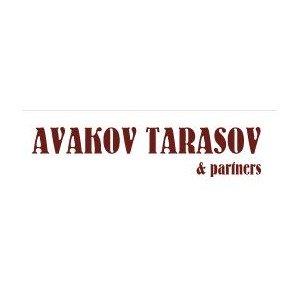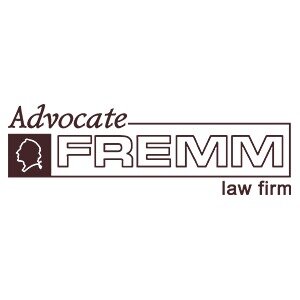Best Conveyancing Lawyers in Russia
Share your needs with us, get contacted by law firms.
Free. Takes 2 min.
Free Guide to Hiring a Real Estate Lawyer
Or refine your search by selecting a city:
List of the best lawyers in Russia

About Conveyancing Law in Russia
Conveyancing in Russia refers to the legal process of transferring ownership of real estate property from one party to another. This process can apply to both residential and commercial properties. Russian conveyancing law is comprehensive and highly regulated in order to protect the rights of all parties involved, ensure the legitimacy of property transactions, and prevent fraud. The procedure typically involves the drafting and signing of a sale and purchase agreement, conducting due diligence, registering the property transfer with the Federal Service for State Registration, Cadastre and Cartography (Rosreestr), and fulfilling all legal requirements regarding taxes and fees.
Why You May Need a Lawyer
There are several situations when legal assistance is especially valuable in the field of conveyancing. Here are some common reasons:
- Complex property ownership structures, such as joint or shared ownership
- Unresolved property disputes or encumbrances on the property
- Drafting or reviewing contracts to avoid hidden clauses or unfavorable terms
- Ensuring compliance with Russian property and tax laws
- Representing foreign buyers or sellers unfamiliar with local procedures
- Handling inheritance-related transfers or gifts involving real estate
- Mitigating the risk of fraud or misrepresented ownership
- Assistance when dealing with mortgage, loan, or bank requirements
- Clarifying property boundaries and legal descriptions
Consulting a knowledgeable lawyer can save time, avoid costly mistakes, and provide peace of mind during a potentially complex transaction.
Local Laws Overview
Russian conveyancing is governed by a variety of federal laws, including the Civil Code of the Russian Federation, the Federal Law on State Registration of Real Estate, and other property-specific acts. Here are essential aspects of conveyancing laws in Russia:
- All property transactions must be in writing and often require notarization, especially when foreign nationals are involved or for certain types of property.
- The transfer of ownership must be registered with Rosreestr to be legally effective. Until then, the seller remains the legal owner.
- Due diligence is critical. Buyers should verify the seller’s ownership rights and check for any restrictions or encumbrances on the property.
- Real estate contracts must include specific details required by law, such as clear property identification, price, and mutual obligations.
- Special rules apply when minors, incapacitated individuals, or jointly-owned properties are involved.
- Payment structures may be negotiated, but careful due diligence and escrow accounts are often used to ensure safe transactions.
- Taxes and state duties are imposed on most transfers and must be settled before or during the registration process.
Failure to comply with these requirements can result in the transaction being declared invalid or subject to legal challenges.
Frequently Asked Questions
What documents are required for selling a property in Russia?
Essential documents include proof of ownership, technical passports or cadastral plans, identity documents, and consent from all co-owners or spouses if applicable. Additional paperwork may be needed, depending on the nature of the transaction.
How long does the conveyancing process typically take?
The process usually takes two to six weeks, depending on the complexity of the transaction, the readiness of documents, and the workload at Rosreestr.
Can foreign citizens buy real estate in Russia?
Yes, foreign citizens can generally purchase real estate in Russia, though there are restrictions in certain locations and for certain types of land, such as agricultural or border zone properties.
Do I need to pay taxes when buying or selling property?
Both buyers and sellers may be liable for specific taxes and state duties. Sellers may owe capital gains tax, while buyers pay registration fees and, occasionally, value-added tax, depending on the transaction.
Is it safe to buy property in Russia?
Buying property in Russia is generally safe if thorough due diligence is conducted, all laws are followed, and a reputable lawyer is involved in the process.
What role does the notary play in the process?
Notaries in Russia verify the authenticity of documents, confirm the willingness and legal capacity of parties, and in some cases, notarize the sale and purchase agreement.
What should I watch out for during due diligence?
Check for outstanding debts, unpaid utilities, disputes, illegal modifications, or legal claims against the property. Also verify that all property documents are genuine and up to date.
Can I complete the transaction remotely or must I be present in Russia?
It is possible to complete a transaction through a legal representative holding a power of attorney if you cannot be present in Russia.
What happens if a property is jointly owned?
All co-owners must agree to the sale. In some situations, certain preemptive rights may apply, requiring an offer to be made to other co-owners before selling to third parties.
What is the final step to legally own property?
The transaction is finalized by registering the new ownership rights with Rosreestr. Until this registration is completed, the buyer does not become the legal owner.
Additional Resources
For more information or assistance with conveyancing in Russia, you can consult the following organizations and resources:
- Federal Service for State Registration, Cadastre and Cartography (Rosreestr)
- Ministry of Justice of the Russian Federation
- Russian Guild of Realtors
- Chamber of Notaries
- Local property registration offices
Legal databases and public notary registries are also useful for verifying credentials and performing preliminary due diligence.
Next Steps
If you need help with conveyancing in Russia, start by gathering all relevant property documents and identifying your goals for the transaction. Then, consider consulting a qualified real estate lawyer or a local notary who can provide specific guidance tailored to your situation. They can review contracts, perform due diligence, communicate with authorities, and ensure that every legal requirement is met. Be prepared to pay legal fees, registration costs, and taxes associated with the transition. Taking the time to seek professional advice can protect you from unexpected legal issues and help ensure your property transfer is smooth and secure.
Lawzana helps you find the best lawyers and law firms in Russia through a curated and pre-screened list of qualified legal professionals. Our platform offers rankings and detailed profiles of attorneys and law firms, allowing you to compare based on practice areas, including Conveyancing, experience, and client feedback.
Each profile includes a description of the firm's areas of practice, client reviews, team members and partners, year of establishment, spoken languages, office locations, contact information, social media presence, and any published articles or resources. Most firms on our platform speak English and are experienced in both local and international legal matters.
Get a quote from top-rated law firms in Russia — quickly, securely, and without unnecessary hassle.
Disclaimer:
The information provided on this page is for general informational purposes only and does not constitute legal advice. While we strive to ensure the accuracy and relevance of the content, legal information may change over time, and interpretations of the law can vary. You should always consult with a qualified legal professional for advice specific to your situation.
We disclaim all liability for actions taken or not taken based on the content of this page. If you believe any information is incorrect or outdated, please contact us, and we will review and update it where appropriate.
Browse conveyancing law firms by city in Russia
Refine your search by selecting a city.














